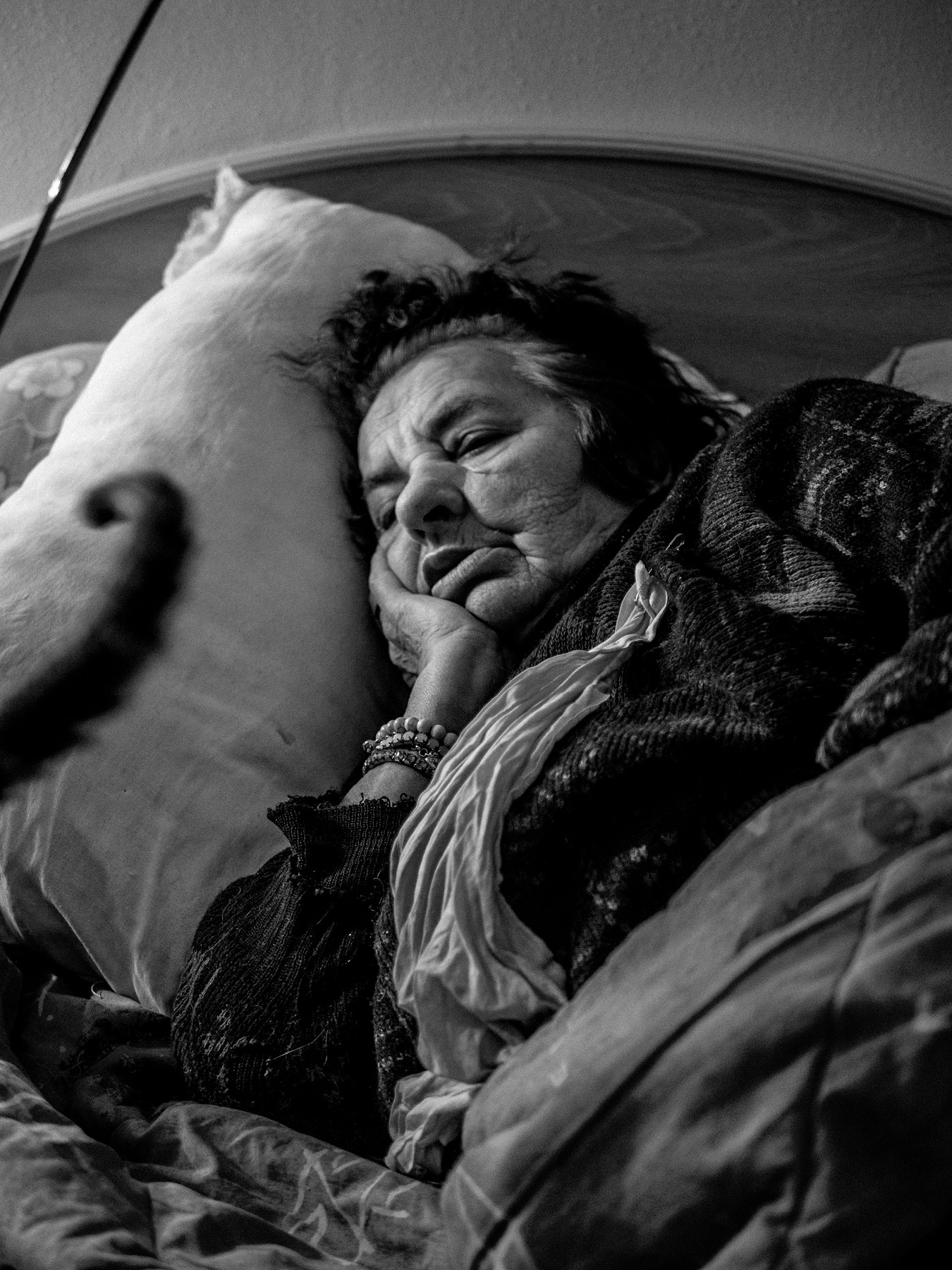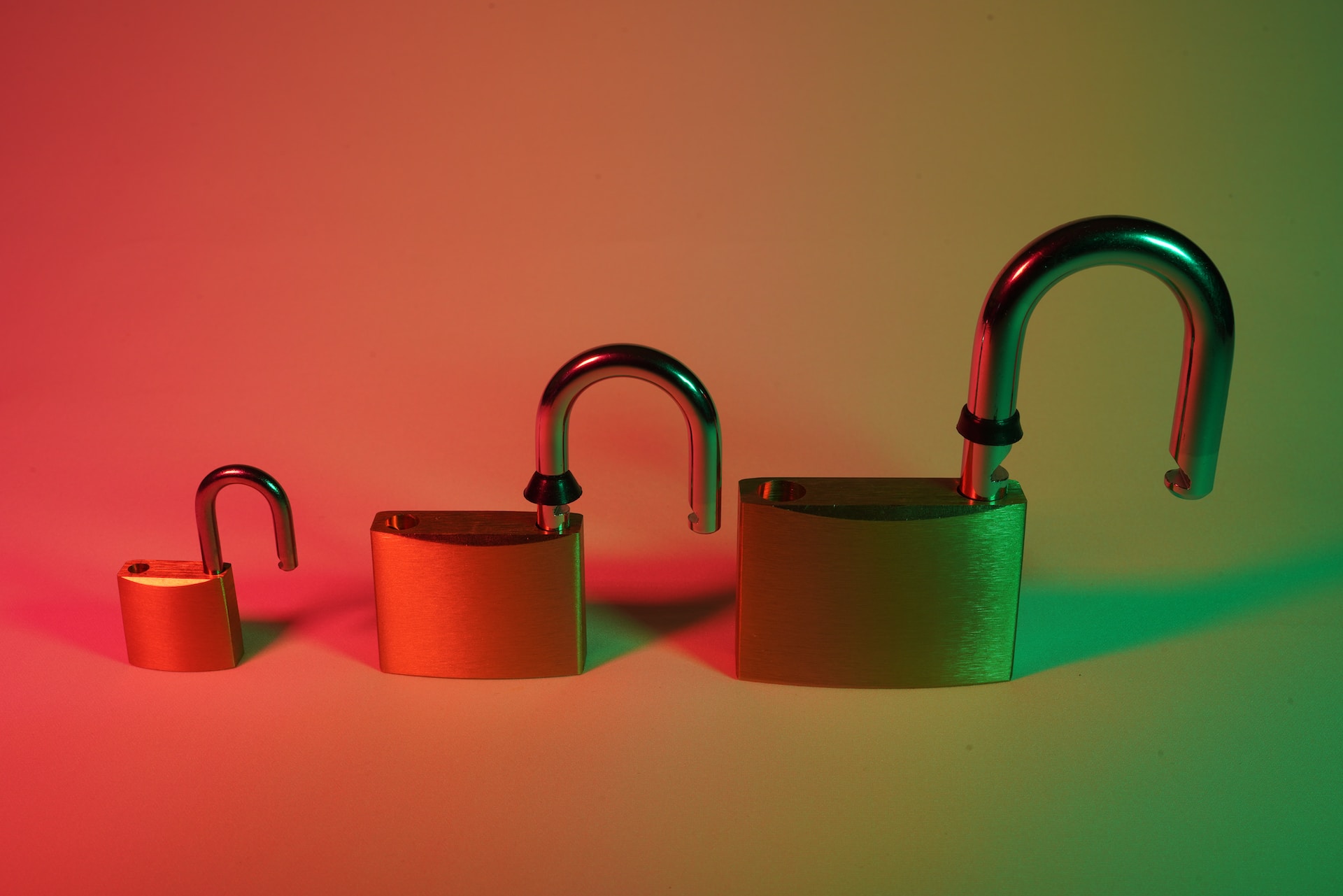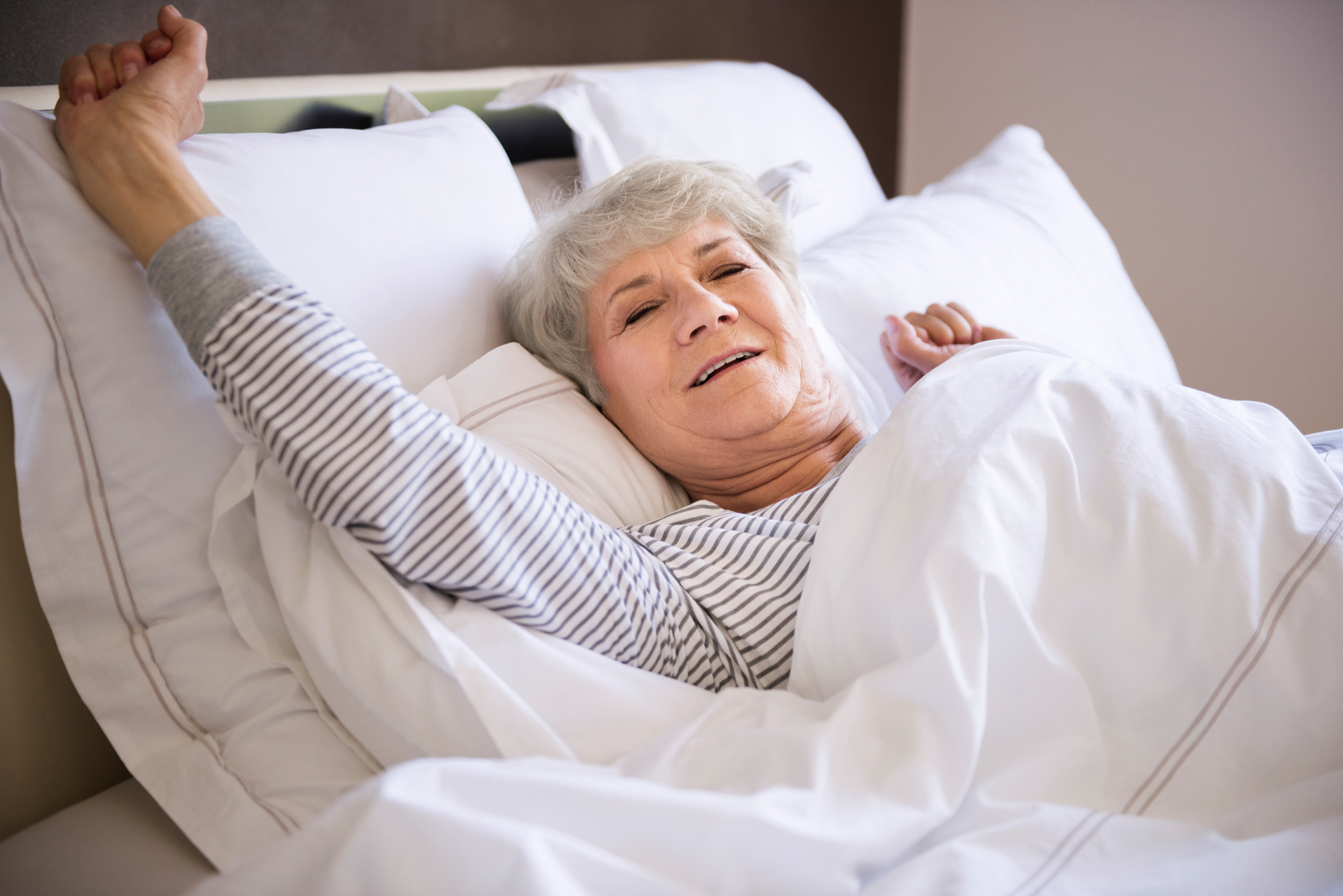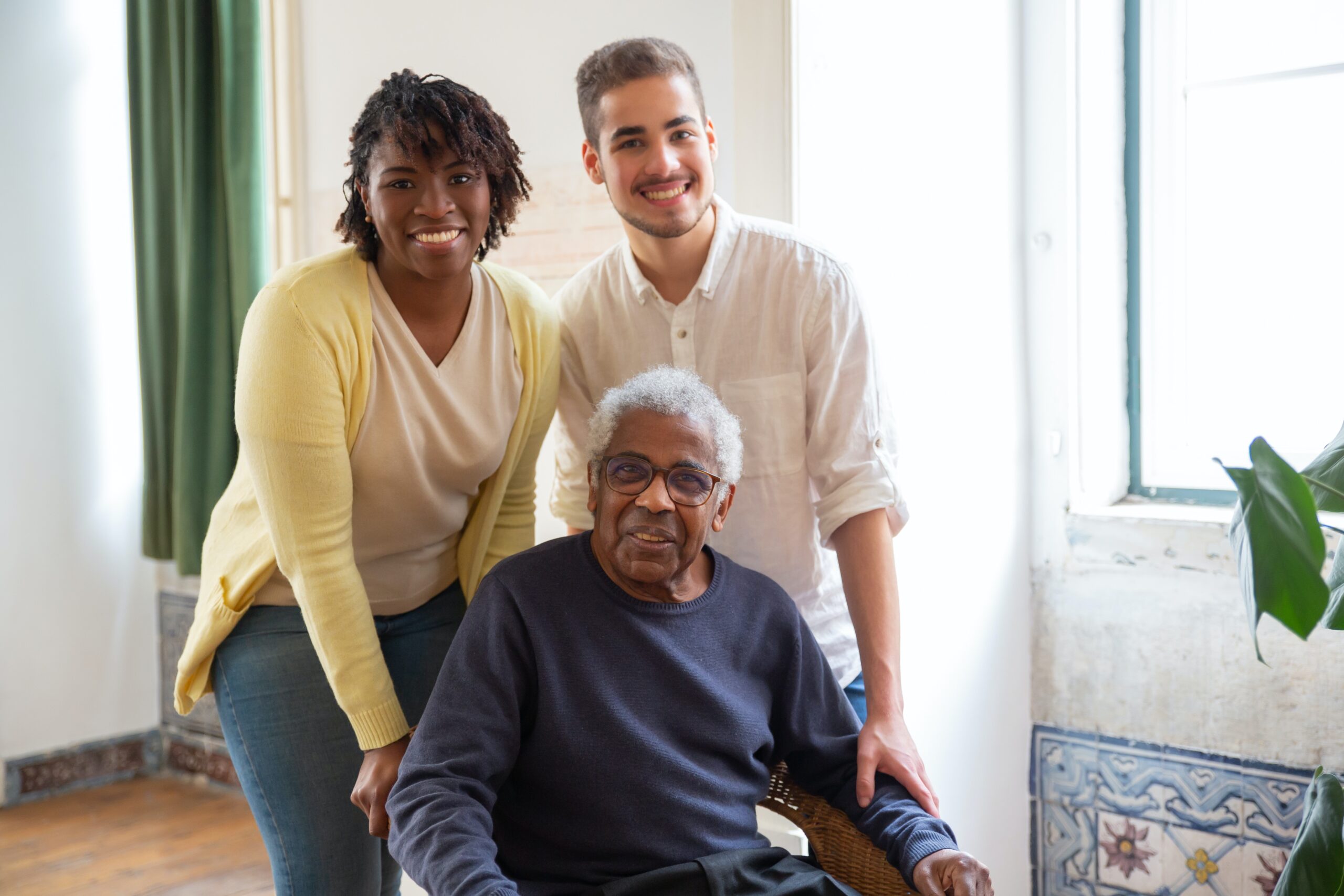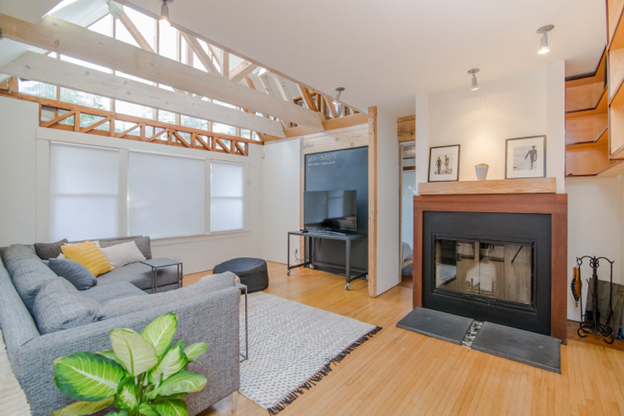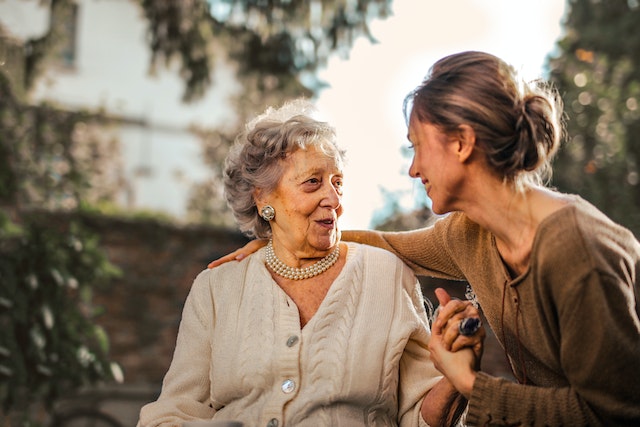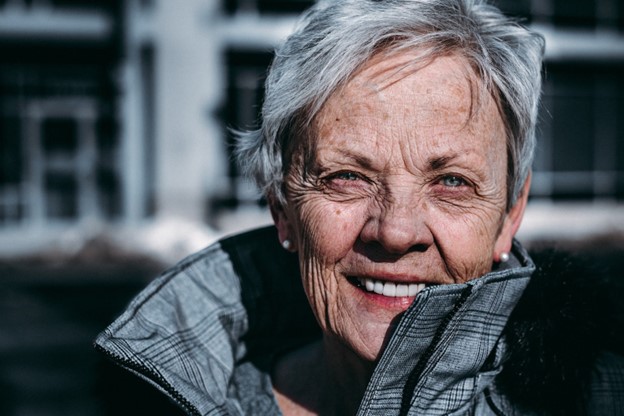By: Martin Carlson, Digital Content Manager/Staff Writer,
https://www.mattressclarity.com/author/martencarlson/
As we age, sleeping can become more and more difficult. If you are an adult aged 65 or older, you could find that sleep is more of a chore.
Older adults often struggle with an increase in sleep latency, meaning it takes longer to fall asleep. Elderly sleepers also produce less melatonin so they don’t sleep as deeply as when they were younger.
These are some of the more common sleep issues that adults 65+ may deal with. Let’s talk about these sleep issues and their causes. Also, let’s look at possible solutions.
First off, we have insomnia. A majority of sleepers will deal with insomnia when they pass 60. Some common symptoms of insomnia include:
- It takes you longer to fall asleep.
- You wake up often throughout the night.
- You wake up early in the morning and are unable to fall back asleep.
- When you wake up, you still feel tired.
- You experience sleepiness or fatigue during the day.
There are a few reasons that insomnia can be such a problem for seniors. They may have other health problems or the anxiety of aging could keep them up at night.
If you struggle with any of these issues, don’t keep it to yourself. True, insomnia is quite common for older sleepers. That doesn’t mean you have to suffer through it. See your doctor, and find out what insomnia cures they might offer.
Sleep problems could also be caused by certain medications you are taking. As you grow older, you may be taking medication for a variety of issues. While they may help you with those specific issues, they could also disturb your sleep.
Here are some medications that could lead to sleep issues:
- Antidepressants and anti-anxiety medication can cause sleep disturbances.
- If you are taking a decongestant, it could make you feel sleepy during the day.
- If you struggle with breathing issues, you might be taking bronchodilators. These have also been linked to insomnia.
- Those who struggle with high blood pressure could take anti-hypertensives. These may lower blood pressure, but they can also keep you up at night.
- You could also be taking corticosteroids for inflammation. These too could lead to certain sleep problems.
Whatever medication you are taking, pay close attention to any sleep side effects. Keep a close eye on your sleep quality and daytime fatigue. Again, a simple change in your schedule could do the trick. See your doctor if your medication is worsening your sleep.
You should also keep an eye out for possible symptoms of sleep apnea. This is very common for older adults, especially those who are overweight. There are three types of sleep apnea:
- Obstructive sleep apnea occurs when your airway relaxes, making it more difficult for air to pass through.
- With central sleep apnea, your brain is not sending the necessary signals to regulate your breathing.
- Complex sleep apnea is a combination of both obstructive sleep apnea and central sleep apnea.
How do you know you have sleep apnea? First, ask your partner if you snore. Excessive snoring is a clear sign of sleep apnea. Cognitive issues, constant napping, and fatigue are also signs.
If you do think you have some form of sleep apnea, again, see your doctor! They could prescribe a CPAP (Continuous Positive Airway Pressure). This machine includes a mask and air pump that continuously supplies air while you sleep. Your doctor could also prescribe a mouthpiece that helps open your airway.
Restless Leg Syndrome can also be a major issue for elderly sleepers. According to a recent study, 35% of adults over 65 struggle with restless leg syndrome. That is quite a high number!
So, how do you know that you have RLS? There are a number of symptoms. When you are sitting down, you could feel an irresistible need to move your legs. This will often happen at night, and your bed partner could complain that it disturbs them. During the day, you might feel extremely tired.
If you believe you may have RLS, see your doctor. They may recommend a few possible solutions:
- Reduce caffeine and alcohol intake
- Begin taking iron supplements
- Take a hot bath before bed
- Add exercise to your daily routine
- Practice meditation
- Follow a healthy diet
While most older adults have trouble falling asleep or obtaining enough sleep, some have the opposite problem. If you find you are sleeping too much, you could be struggling with hypersomnia. This means you are extremely sleepy all day or you sleep too much at night.
How much is too much? Well, it does vary depending on your specific situation. However, if you are over 65 and sleeping more than 9 hours per night, it could be a symptom of hypersomnia.
So, why are you sleeping so much? It could be because of other medical conditions that you have. If you deal with depression, heart disease, or diabetes, you may feel more tired throughout the day.
At the same time, some health conditions could make it more difficult to sleep at night. For instance, arthritis could cause serious discomfort, causing you to wake often. Some conditions could also make you need to use the restroom more often. This could, of course, disrupt your sleep.
Above, we have recommended that you see a doctor for most of the conditions. However, there are a few things you can do to improve your sleep quality:
- Keep technology out of your bedroom. The light from your TV, cellphone, and computer can negatively impact your circadian rhythms.
- If you are going to drink caffeine or alcohol, make sure it is no less than four hours before bed.
- Do not eat or exercise too close to your bedtime.
- Try not to nap unless you absolutely must.
- Keep your sleep schedule as regular as possible.
All of these steps are part of what we call sleep hygiene. If you practice good sleep hygiene, you could see some serious results!
If you are still experiencing serious sleep issues, there are some other things you might try. It is possible that your doctor could recommend sleeping pills. However, do be careful. The American College of Physicians says that this should not be the first solution you try. They could lead you to feel drowsy during the day or sleepwalk. Allergic reactions are also a possibility.
Your doctor could also suggest that you try Cognitive Behavioral Therapy (CBT). Studies have shown that CBT is quite effective in curing insomnia. You might also try natural remedies like melatonin or magnesium supplements. Chamomile tea could also help you fall asleep more quickly.
Just because sleep is more difficult when you age, it doesn’t mean you have to grin and bear it. Sleep is so important to your overall health. Don’t ignore it!
Submitted by:Jennifer Barajas
p: (210) 332-7610, e: jennifer@mattressclarity.com

